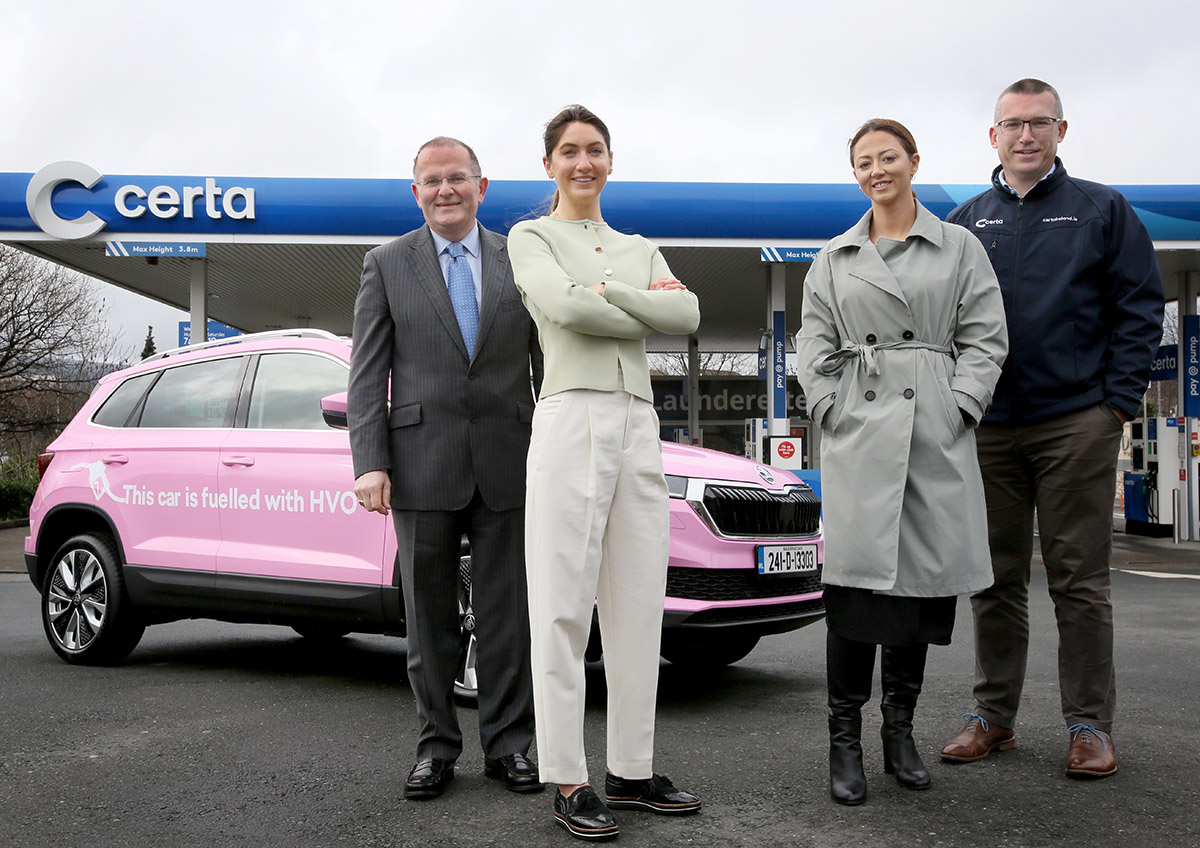Škoda have teamed up with fuel supplier, Certa, to encourage diesel drivers to switch to a more environmentally friendly option, HVO, or Hydrotreated Vegetable Oil, which is a direct replacement for diesel.
HVO is made essentially from waste matter and hydrogen but it’s treated so that it can be used in modern cars as a direct diesel replacement. In fact, the two fuels can co-exist in the tank in any ratios and there should be no difference in the driving experience.
Unlike first generation biofuels, which are made from crops such as rapeseed and soy, HVO is a second-generation biofuel, which means it’s made from100% renewable and pre-existing bio-waste products, primarily used cooking and vegetable oil from food industry waste.
Use of HVO results in a 90% reduction of carbon emissions, making it an easy win for fleets or private buyers who are not ready or unwilling to move to full electric.
Although HVO is usually slightly more expensive than diesel, Certa is currently running an offer to bring the price down to that of diesel and while HVO is only available at a handful of stations around the country, there are plans to introduce more new pumps nationwide to make the switch easier. The plan is to have HVO available at all of Certa’s 41 manned and unmanned stations.
Availability
HVO is currently available at Certa forecourts in Liffey Valley in Dublin, Lee Tunnel in Cork and Trim in Meath. Seven more forecourts should be HVO-ready by the end of this year. The forecourts planned to be fitted with HVO pumps are located in Dundrum, Tallaght and Finglas in Dublin, Maynooth in Kildare, Letterkenny in Donegal and Athlone and Mullingar in Westmeath.

On Certa forecourts, look out for a pink nozzle, which is the colour chosen for HVO, in contrast to the black diesel and green petrol pumps.
Compatability
On the Škoda website, you can enter the registration number of your Škoda to find out whether it’s compatible or not. All diesel Škodas manufactured since mid 2021 are fully compatible in any case.
For other makes, the situation isn’t as clear. Most modern cars should run perfectly on the fuel but in my case, I’m finding it almost impossible to get a definitive answer on whether my 2008 5 Series will run without issue on the fuel. It’s a case of checking with your dealer or manufacturer, or you may be lucky enough to have the information provided in your hand book. Make sure to check your car’s compatibility before using HVO.
Diesel cars still accounted for 22% of the overall market last year so they are still selling strongly but if all those cars were fuelled by HVO there would be a massive decrease in greenhouse gasses emitted. It’s encouraging that HVO production is sufficient to meet the entire needs of all diesel cars on Irish roads, with Scandinavian countries being the main producers.
John Donegan, Brand Director at Škoda Ireland, said: “We are excited to partner with Certa on this campaign, which aims to encourage existing owners or buyers of new diesel cars to use HVO as an alternative to diesel. At Škoda, we recognise the importance of switching to electric cars, but we also recognise that many buyers are still choosing diesel models for a variety of reasons. They may not have access to a home charger, for example, or they may want a car with an extensive range. For these motorists, it makes sense to switch to HVO as the fuel becomes more widely available. We believe diesel car owners will consider this switch if they are made aware of the benefits of HVO and we hope our promotional and marketing campaign will increase awareness among not just Škoda owners, but all owners of diesel cars.”

Andrew Graham, Managing Director of Certa said: “We are delighted to work with Škoda on this campaign. At Certa, our goal is to make it easy for motorists to transition to HVO as a renewable alternative to diesel. HVO’s benefits are well established, so we believe drivers of diesel cars will switch to HVO if they are encouraged to do so and if they understand that it works as a drop-in replacement without the need for modifications. By switching to HVO, these motorists will reduce their own carbon footprint, but they will also help to lower the emissions of the country’s transport sector.
“Most modern diesel cars are HVO-ready, but we would advise all owners to check with the manufacturer of their car to make sure this is the case.”










